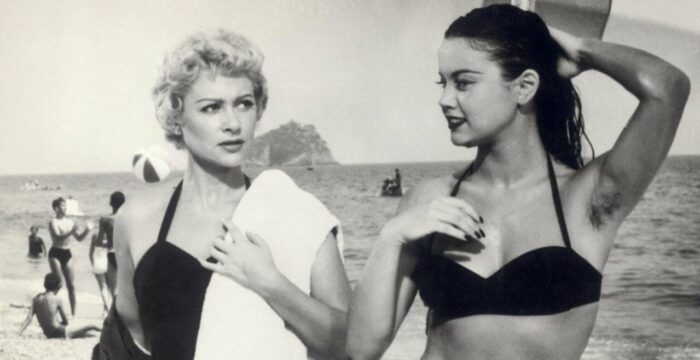One of the most famous quotes about Italian postwar cinema comes from Giulio Andreotti, who as a vice-minister in one of the eight De Gasperi governments likened Neorealism to the washing of dirty laundry in public. The cinema of this era, thus, should be a clean one that only showed an unspoiled, spotless, unsullied, pristine if not outright immaculate image of Italy. But what does that mean? Alberto Lattuada was one of the most stylish and refined masters of the era, whose films were always perfectly crafted and radiant with beauty – while often talking about all the unsavory things to be found in the so spotless-seeming world, especially of the gente per bene. Which makes The Boarder something of a reflection on the period, its morals: Here, a high-class sex worker goes on holiday with her young daughter, gets seen by one of her clients whose loose lips soon have everybody whispering in nasty tones about the poor woman.
What becomes visible, even when seemingly good deeds get done, is a world made of little more than hypocrisy, a mere façade, a chillingly silly charade. This fits well with one technical aspect of The Boarder: It was one of the very first Italian color films; the technology, especially in its Ferraniacolor-variety here, stresses the artificiality of the world we get to see… The Boarder might look harmless, but it’s a bottomless pit.
Olaf Möller
